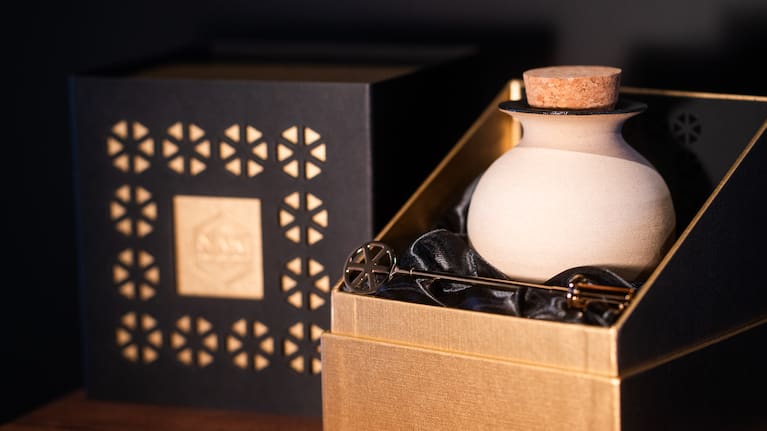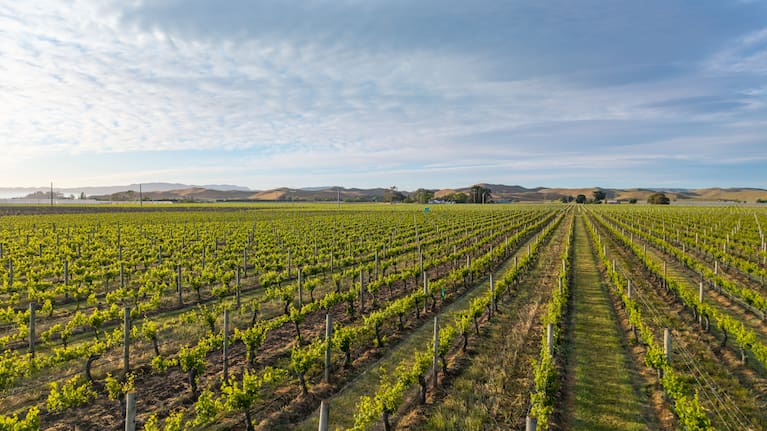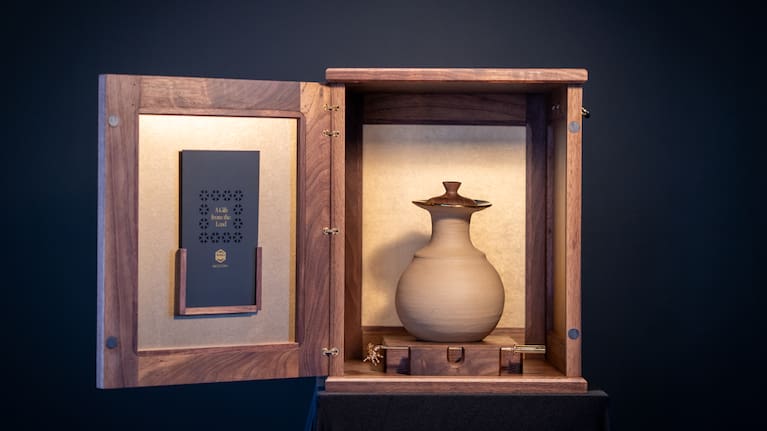A Taranaki honey producer has launched what it says is the world’s most expensive honey, on sale for an incredible $500,000.
Naki Mānuka Honey’s Eternal Gold collection was unveiled this week at the New Zealand Liberation Museum - Te Arawhata in Le Quesnoy, northern France.
It includes a one-off 2 litre Eternal Gold ceramic vessel, as well as six $10,000 vessels and 66 smaller $1000 vessels.
The honey, on sale in France and Germany, has a unique manuka factor rating of 25+, marking the potency, authenticity, freshness and purity as one of the highest in the world.
Eye-wateringly expensive NZ honey sold as a family heirloom - Watch on TVNZ+
The producers say it was inspired by the discovery of 3000-year-old honey sealed in an Egyptian tomb.
“The honey is still intact, you know, it hadn't perished and I thought that was quite astounding," general manager for sales and marketing Derek Burchell-Burger told 1News.
“So then we started doing a little bit more research and we found that this seemed to be a common, seemed to be universal, across a few cultures in Africa - even the Americas and Europe."
Honey doesn’t technically expire like other foods because of its low moisture content, acidity and high natural sugar concentration and Burchell-Burger said he hopes customers will see the pieces as investment heirlooms that are passed down through the generations.

Burchell-Burger thinks investors from the United Arab Emirates, France and Germany will be particularly interested in buying the product.
"We're very privileged in New Zealand because that's where mānuka comes from so it's all over the shelf, but in many of the other countries that you go to including, I just mentioned Dubai, It's highly sought after but very hard to get. And usually what I've discovered is they're looking for like the best, they're looking for the top grade.
"They are keeping it on display in their pantry and when they're having their friends over for for breakfast or a dinner party sometimes, you know the teaspoon of mānuka comes out, it's almost like opening a bottle of champagne. So I think it's going to be very well received from the markets that already have a good sort of mānuka clientele."
NZ's reputation for quality
New Zealand Trade and Enterprise's Europe, Middle East and Africa regional director Amanda Martin says the country is well-positioned to make the most of growth in the Europe luxury market, because of New Zealand's quality reputation.
"Here across Europe with a number of New Zealand companies we're really helping them think about how they position themselves, particularly if they are targeting this higher end of the market.
"It's good to think about that provenance of New Zealand and what really differentiates us here in the market.
"Those things are our own authenticity, our sustainability and that premium quality and craftsmanship that is in high demand from the European consumer."
IN the year since the NZ-EU free trade agreement came into force in May 2024, New Zealand exports of goods and services to Europe grew by 28% to $7.88 billion.
NZTE says the country's contribution to the luxury sector includes providing mānuka honey for high-end skin care, through to pāua shells for luxury Swiss brands and merino wool and leather for luxury fashion.
Other examples are technology and components for super yachts, technology that helps business track supply chain traceability, lamb and top-shelf wines.
Statista reports the Europe luxury goods market, not including food and beverage, is worth an estimated $228 billion this year and is predicted to keep growing post a slump during Covid-19.

Another Kiwi presence in the European market is Te Mata Estate. Its EU, UK and Dubai market manager Toby Buck says the quality and transparency of their Hawke's Bay wine production continues to see the business grow overseas.
He said research and innovation can take place, which is not always possible in France.
"They have regulations that control every aspect of winemaking, so they don't have those freedoms and we are benefiting from that in terms of the quality, the point scores, the recognition that you're starting to see of New Zealand wines."
Buck said overseas markets have a preference for in-person meetings for greater transparency and this can be a challenge for smaller New Zealand producers.
"In-person tastings, customer tastings, showing face, showing your story as people are becoming more aware of luxury products or from other parts of the world.
"When I talk about New Zealand wine, I will do a mihi. I will introduce myself in Te Reo. I will talk about the land of Hawkes Bay, the mountain, the river, these kind of aspects and talk about land and stewardship and custodian roles and these kind of things so that people can understand where they're coming from."
He said in the luxury market, customers are also seeking services linked to products.
"Can they visit the winery? How well can they get to know you?"
He said New Zealand is well-positioned for this as the country is known for friendly and open people who are happy to share how a product is made.
"That is what really pays dividends in the luxury market now, being honest and transparent and keeping a close eye on your product."
Watch Kate Nicol-Williams' report on on TVNZ+
The morning's headlines in 90 seconds, including the Police Commissioner’s opinion on publishing leaked audio, two charged over a barbershop attack, and David Beckham and the King swap fashion tips. (Source: 1News)



















SHARE ME